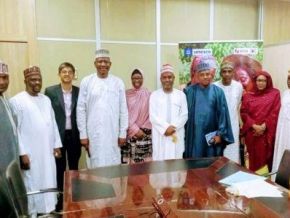- Kano State joins UNESCO-Korea BEAR III education project.
- Focus on technical skills, irrigation, and labor market needs.
- Aims to boost youth employability, tackle Nigeria’s education gap.
Kano State has confirmed its participation in the Better Education for Africa’s Rise (BEAR III) project, which aims to modernize technical and vocational education. According to local press reports on September 4, the northern Nigerian state is collaborating with UNESCO and the Republic of Korea to provide young people with practical skills that are immediately applicable in the labor market.
The program includes an assessment of all technical schools to identify needed improvements in infrastructure and curricula. Seminars on professional apprenticeships and practical internships in the agricultural and technological sectors are also being offered to give young people hands-on experience. At the same time, career guidance roundtables help students make informed choices. The government is adapting programs to local needs, focusing on irrigation and other technical skills in high demand.
This initiative comes amid significant inequality in Nigeria. According to the World Bank, the national poverty rate stood at 36% in 2023. The institution also notes that Nigerians born in 2020 are expected to achieve only 36% of their potential future productivity without full access to education and health. This ranks Nigeria seventh from the bottom globally on the Human Capital Index. BEAR III seeks to close this gap by offering relevant training and steering young people toward promising sectors.
“We are looking more into developing curricula in areas that are much applicable to Kano, particularly those that lay emphasis on irrigation,” said Idriss Bugaje, Executive Secretary of the National Board for Technical Education (NBTE), during a working session with the project’s technical team.
The success of this initiative will depend on the commitment of authorities, the involvement of institutions, and consistent monitoring of results. In May 2025, the NBTE presented a national plan to deploy 774 local evaluators to ensure the quality of training. To maximize its impact, the project will need to integrate trained youth into the workforce, strengthen infrastructure, encourage private sector participation, and ensure the inclusion of women and marginalized groups.
Félicien Houindo Lokossou
